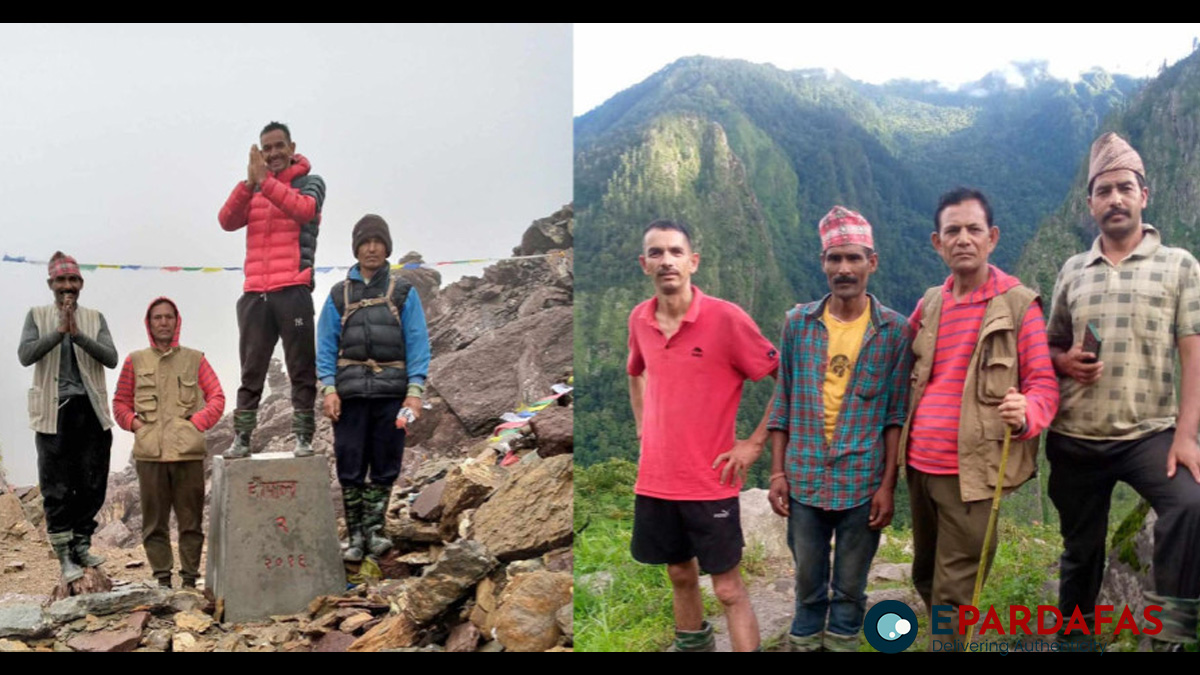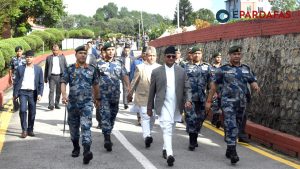Chinese authorities have turned back a group of Nepali pilgrims attempting to reach the sacred site of Mansarovar via the Urai Pass in Bajhang, citing orders from higher authorities. The Nepali pilgrims, who had embarked on their journey from various villages in Bajhang, were stopped at the Chinese checkpoint near Taklakot, a market in the Purang County of Tibet.
According to Bishwamitra Kuinkel, the Chief District Officer (CDO) of Bajhang, the Chinese authorities allowed the pilgrims to travel only up to 30 kilometers from the Nepali border. However, those attempting to proceed further towards Mansarovar were sent back. Kuinkel stated that the Chinese administration had informally communicated to the Nepali side that no entry cards would be issued for travel beyond Taklakot, and locals had been advised accordingly when obtaining passes. Despite this warning, some pilgrims ignored the restriction and were turned back by Chinese security forces.
“The residents of border districts between Nepal and China are allowed to travel up to 30 kilometers into each other’s territory with a pass issued by the local administration. The Bajhang administration had issued passes for Taklakot via Urai, but the Chinese authorities did not permit the pilgrims to go further,” Kuinkel explained. He also mentioned that the Ministry of Home Affairs has been informed about the incident.
The Chinese authorities reportedly informed the Nepali pilgrims that to travel beyond 30 kilometers, a visa application and additional formalities would be required. The pilgrims were also advised that their entry pass only permitted access to the Taklakot market.
Chandra Bahadur Singh, a resident of Jai Prithvi Municipality-1 in Bajhang, who was among the pilgrims, recounted their experience. He said they needed water from Mansarovar for religious rituals and decided to travel to the sacred site. However, on reaching the Kathan checkpoint on August 6th, Chinese security personnel stopped them, deleted some photos from their mobile phones, and denied them entry.
“We walked as a group to Mansarovar via Taklakot to collect water for our goddess, but the Chinese authorities sent us back from Kathan, 30 kilometers before Saipal in Bajhang,” Singh said. He added that they had considered reaching Mansarovar through the Hilsa Pass in Humla, but returned home upon learning that passes issued from other districts would not be accepted.
Singh expressed his disappointment over the obstacles preventing them from fulfilling their religious duties, stating that the administration should have facilitated their journey but failed to do so.
On the other hand, CDO Kuinkel asserted that the administration had issued passes in line with the agreement allowing travel only up to 30 kilometers from the border. He claimed that the pilgrims’ attempts to travel beyond this limit, despite being informed of the restrictions, led to their disappointment.
Nepal shares a 1,414-kilometer border with China, with 15 districts, including Bajhang, located along the northern border. The Urai Pass in Bajhang is one of the traditional international border crossings between the two countries. Recently, the Ministry of Home Affairs issued a procedure to open 14 border crossings to China and arrange for a five-year entry pass for travel. However, this procedure has not yet been implemented.
Currently, in coordination with the Chinese administration, district offices along the northern border issue passes allowing Nepalis to travel up to 30 kilometers into China for market visits. Although the Chinese authorities sometimes permit access beyond this limit, especially in practical situations, the recent incident indicates stricter enforcement of the 30-kilometer rule, reportedly due to security concerns.
Input From ekantipur.com














Comments